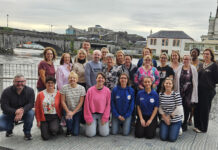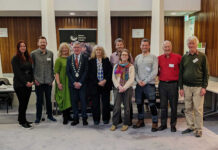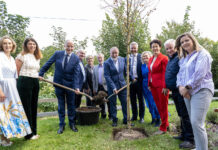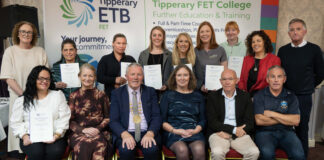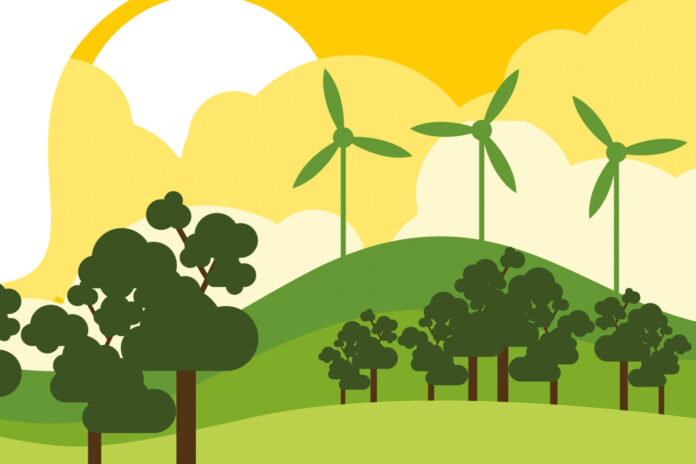
Alissa MacMillan
Q: I’m loving watching the Paris Olympics, but it has me thinking about all of the waste that’s being created. How bad are sports, at this level and more locally, for the environment?
A: Your excellent question is of course quite complicated, as there are so many factors to consider, from the gear we buy to the fields, grounds and stadiums we use, to travel to matches and events to the food we eat when we get there. Sports can also be the very way we come to appreciate the outdoors and form a connection to the environment.
I spoke with Dr. Eleni Theodoraki, Professor of Sports Management at UCD’s School of Public Health, Physiotherapy, and Sports Science, who notes that the big news story in Paris is that “they have not built so many permanent stadiums; they have built temporary structures.” This is a good thing because they will come down and ideally be used again.
This matters on the larger scale and the smaller – if you can achieve “dual-use,” it’s more sustainable. Think of the local GAA club house which sits empty all day. One of Theodoraki’s students suggested they be used for things like gathering of older citizens during the day, because what’s left unused comes at a cost, both environmentally and for social sustainability. Permanent structures like the Aviva stadium, which gets relatively little use, hosting maybe thirty events annually, is a huge structure, gone mostly to waste.
The original impetus for the first Paris Games in 1896 was to “instill a sense of responsibility in the youth and prepare them for something more noble,” says Theodoraki. Sports are just the place to do this for the environment, she says, where, alongside school and the home, values are instilled. As a former elite rower, Theodoraki points to the crucial role of the manager or coach. Her own relayed lessons on hygiene and being on time, which have stuck with her. “The coach speaks to the players, do they give messages about the environment? Are they sensitising the young people into the importance of looking after the environment?”
As with most eco-worries, knowing more and being clear on the impact of our behaviour is the best strategy. “We need to get into this habit of making an audit of how our actions are affecting the environment.”
Some simple questions might be asked, like: does the club have recycling? Does the club have energy efficient lighting? Are they switching off the lights at the right time? Are they using a bank which is environmentally sensitive? Are we considering the UN’s sustainable development goals? Might we take the team to pick up rubbish in the park once a month?
“When you become a leader, you are entrusted with looking after nature, and should see that as your responsibility, from the small things to the big things.”
SUPPLY CHAIN
Parents are also part of the club, so can collaborate on transport arrangements, noting if there’s a bus, and have a voice about the supply chain for equipment, for example, who you are buying from. There was trouble a few years ago because “footballs from FIFA were sewn together by blind children in factories,” says Theodoraki. The organizing committee for the London Games, which she has studied closely, had a “careful look at the supply chain,” she says, looking for fair trade, for example.
You might also ask whether new jerseys are really necessary or if the club has merely fallen for the “growth regime” so prevalent today. And when you do need new ones, ask what you might do with the old ones, like sending them to developing countries.
A food waste scandal at the London Olympics saw yogurt and prawns thrown away in bulk. What holds for large events is the same for small: “A mother giving pocket money to her child,” Theodoraki says, “are they going to the canteen of the club to buy rubbish, donuts, and chocolate? Is it fair trade coffee, organic meat? Where is the food source?” It is up to management taking responsibility, she says. “You can make choices about what you do, how you source, the quality and origin, and what happens to the leftovers, like if it’s given to the local charity, the homeless shelter, or taken home in doggie bags.” All of these decisions matter.
INFORMED CHOICES
Sports are also about youth and “young people demand a solution from us. We have failed them.” Athletes can be encouraged to take ownership of their actions – “they know, they’ve seen pollution, they’ve seen climate change.” Elite athletes can also be “ambassadors for the environment,” she notes.
Another worry is the encouragement of sports which don’t suit their environment, for example, playing golf in Greece. “We are meeting our needs today without considering the future,” and not adapting to our resources, she says. As noted previously in this regular column, in hot climates, a golf course can use more water to maintain than what’s used in a town of 60,000 people, but money is being paid to lobbies like the golf industry to greenwash, with “corruption, vested interest, inertia, and lack of awareness” keeping environmental considerations at arm’s length.
Identifying these factors is a good start, Theodoraki says, for “making informed choices and thinking for yourself. When you have the tools, you can prevent, make adaptations, and take small steps. Then we can make the change we want to see.”
Whether it’s an event as big as the Olympics or a local GAA match, the same principles hold: one of awareness, environmental common sense, and “reduce, reuse, recycle” – everything from your team jersey to the entire stadium.



